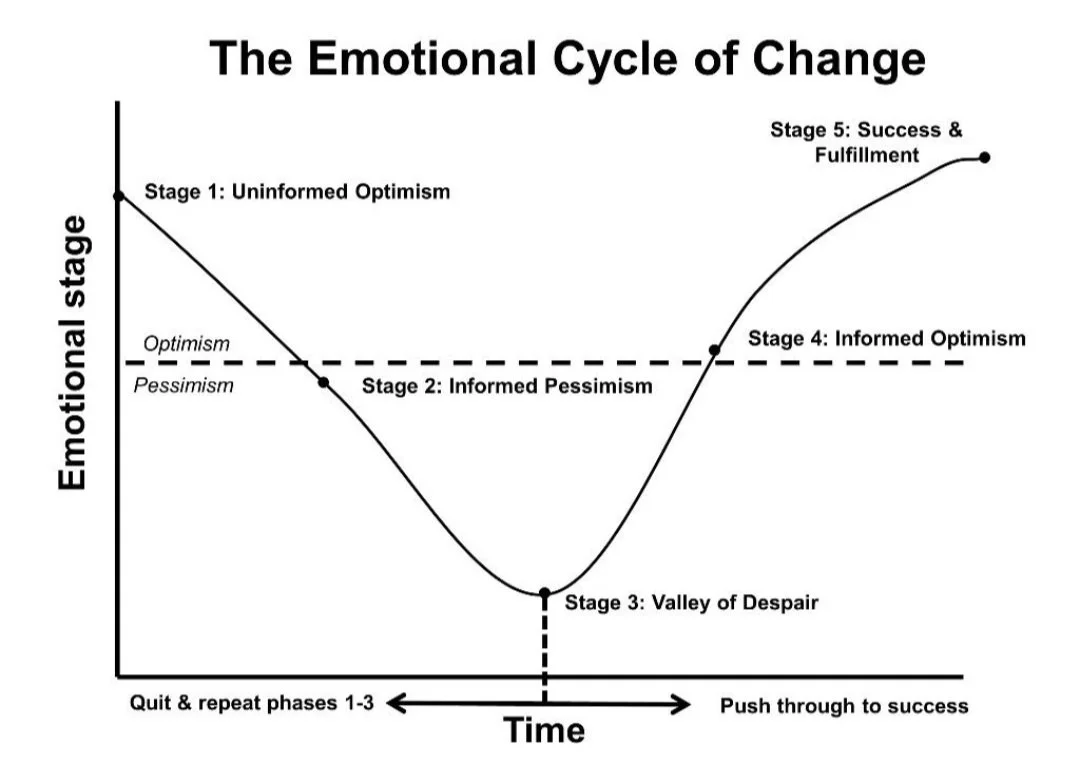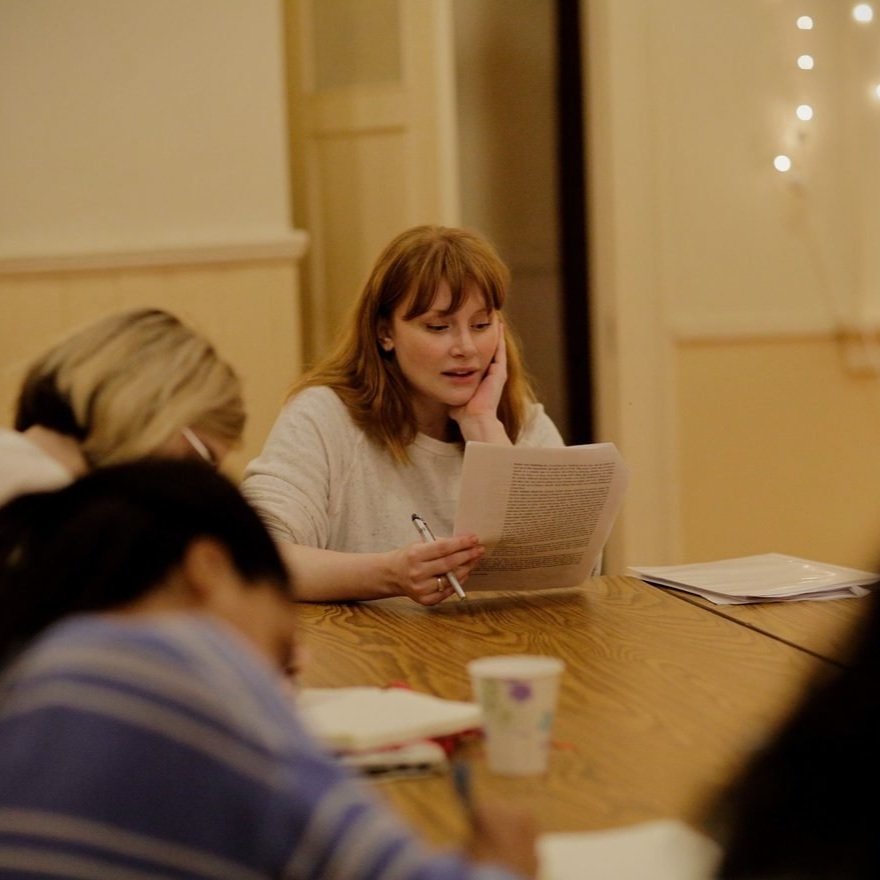The Genius Graphic I Wish I’d Seen 20 Years Ago
June 18, 2023
This past week, I attended the Directors Guild of America (DGA) union meeting in Los Angeles to hear updates to the guild’s proposed contract with the studios (AMPTP), all of which will have a significant impact on creatives in the future.
There is a lot of nuance to consider before voting in the coming weeks, but specifics aside — because I am truly no expert in interpreting contracts — it was the meeting itself that made me feel, dare I say it, optimistic. Why? Transparency of information! And with that, the ability to make educated decisions! Every person in that room left more informed and empowered than when we entered.
As the saying goes, information is power.
Ever since I started teaching, I’ve struggled to find the right balance of optimism and candor when speaking with my students about pursuing a career in the arts. What information can I share to prepare them for the inequities and unpredictability of this business while also articulating the scope of opportunity, success, and fun that is possible along the way?
If you don’t already know it, let me introduce you to “The Emotional Cycle of Change,” a change model adapted from psychologists Don Kelly and Darrell Connor to describe the emotional rollercoaster of a learning curve. For me, this concept is helpful for understanding the various “seasons” of a career.
This is what the Emotional Cycle of Change looks like:
If we think about this model through the lens of starting a new creative project or experience, here are the five emotional stages that a person can expect to go through:
Uninformed optimism
Informed pessimism
Valley of despair
Informed optimism
Success and fulfillment
The first stage is one of uninformed optimism, a honeymoon phase where excitement and imagination about the new experience fuels our visions of success. Our mind is brimming with ideas and romanticized expectations for the outcome, but we have yet to grasp the realities of the challenges involved.
Uninformed optimism doesn't last long. As we delve deeper into the experience, a reality check occurs. Informed pessimism sets in, and the initial high is overshadowed by obstacles, sacrifices, and pitfalls. Doubts arise.
The lowest point of the emotional cycle is the valley of despair when we want to quit. The overwhelm of setbacks and the pain of failure become evident, and the promised benefits seem impossible. Life at this stage feels like it would just be wiser to give up and cut your losses.
I want to make a little comment here: according to the “emerging artist” survey many of you filled out, the majority of you are either in the first 2 years of your career or 5+ years into your career. There’s not as many of you in the 3-5 year range and I wonder if it is because a lot of people quit within this time? That 3-5 year range is the valley of despair!
This seemingly hopeless and very scary period takes an emotional toll. You have been long exposed to harsh realities and the Sisyphean task ahead of you feels like “life is too short.” But if you consider the emotional cycle of change, feeling stuck in the valley of despair is evidence of how far you’ve already come. You know what you’re up against but also you’ve acquired the skills and knowledge to put a new informed plan into place and seek support.
And then we reach the next stage of informed optimism. It doesn’t mean everything is suddenly going right or working out, but now that we are informed, this is the stage where we earn feeling confident in our path. We’re growing from our experiences and oftentimes, the results start to show.
Now if there’s one thing I’d change about this graph, it’s extending the time between this stage and the next: success and fulfillment. This is the final stage where new practices that were once difficult and uncomfortable become routine and gratifying.
I say this not to discourage you from feeling a sense of accomplishment, but to encourage you to focus on the journey rather than the destination. It takes time to establish those routines and there’s so much to learn, always. It’s also not a linear path forward; you may find yourself back in the valley or informed pessimism as you gain knowledge and experience.
So in the spirit of information leading to power, below are three resources that I personally have utilized to help me to better understand the ups and downs of a career in our industry:
The L.A. Times created a guide to entertainment industry careers with a library of articles, stories, and explainers for starting and building your career in the entertainment industry.
The Geena Davis Institute sources fantastic research about representation of gender, race/ethnicity, sexuality, disability, age, and body time on screen and behind the scenes.
The Entertainment Fund offers career counseling sessions (and many other workshops and resources) so you can speak with an expert about current industry trends.
Pick one article/resource/study and tell me something you learned! What surprised you? What information brought you comfort or clarity? Share your discoveries using the below form:
Informed optimism or bust!
You May Also Like…
“Time to Rally: The First Step to Supporting Yourself”
The entertainment industry historically has very little financial transparency, and as a result, most folks are in the dark as to how a person can make a living in the arts. So how does an emerging artist access opportunities that will eventually lead to a livable wage, consistent work, and ultimately “making it” (a.k.a. “supporting” themselves with their art)?
“6 Words to Let Go of Imposter Syndrome”
Raise your hand if so-called “imposter syndrome” has a stronghold on your confidence. Why is it that we feel so intimidated and insecure?
It’s natural to feel intimidated or anxious as you’re learning. It’s a sign that you’re at the beginning of your journey and you may need more time, practice, and feedback. But let’s say you’ve done all that — you have experience and every reason to feel confident… yet those feelings persist. Why? The answer may surprise you: IT IS NOT YOUR FAULT.
Sign up for Bryce’s newsletter and be the first to receive Q&As, behind-the-scenes updates on all things BDH, insider tips for navigating the entertainment industry — and more!



